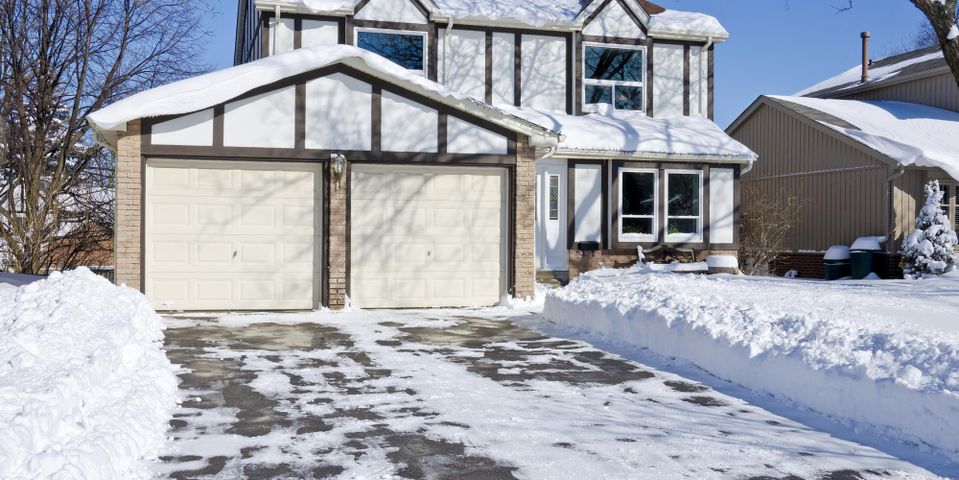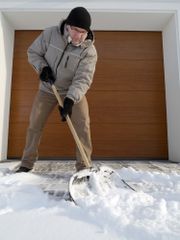
Freezing temperatures are the enemy of asphalt paving. Preparing for frigid winter weather is essential for maintaining surface condition. A surface may not only develop cracks and potholes but also become unsafe. Here’s what you need to know if you want to minimize the effect of winter on your asphalt.
Do Snow & Cold Weather Affect Asphalt Paving?
Freezing and thawing, which repeatedly occurs throughout the winter season, can be particularly destructive if a surface already has cracks. Temperature fluctuations cause pavement to contract and expand. Any water that seeps into cracks will also freeze and expand, increasing upward pressure. As a result, cracks may enlarge, and the pavement base may erode. When water thaws, it leaves gaps between the base and the pavement, which produces sagging and depressions.
 Plows, shovels, and chemical deicers can also mar asphalt paving. When the blade of a snowplow is set too low, it may gouge a surface. Asphalt not seal coated may be damaged by the wrong type of deicer. Consult with a reliable paving contractor to find out which deicer best suits your asphalt.
Plows, shovels, and chemical deicers can also mar asphalt paving. When the blade of a snowplow is set too low, it may gouge a surface. Asphalt not seal coated may be damaged by the wrong type of deicer. Consult with a reliable paving contractor to find out which deicer best suits your asphalt.
How to Lessen Asphalt Damage
A high-quality pavement is capable of withstanding freezing and thawing cycles as well as the application of deicers. Seal coating services every few years help protect and extend the life of asphalt paving. In addition, have cracks and holes repaired as soon as possible to prevent surface damage from getting worse.
Let the experts from Carl Burns-Hotshot Asphalt in Union, MO, keep your asphalt protected and looking its best. Whether you need seal coating, pressure washing, or asphalt paving, this established and top-rated company has a reputation for exceeding expectations among clients across Franklin County. Call them today at (636) 584-7283 to request a quote or schedule an appointment. You can also visit their website to learn more about their history and approach to pavement repairs and resurfacing.
About the Business
Have a question? Ask the experts!
Send your question

